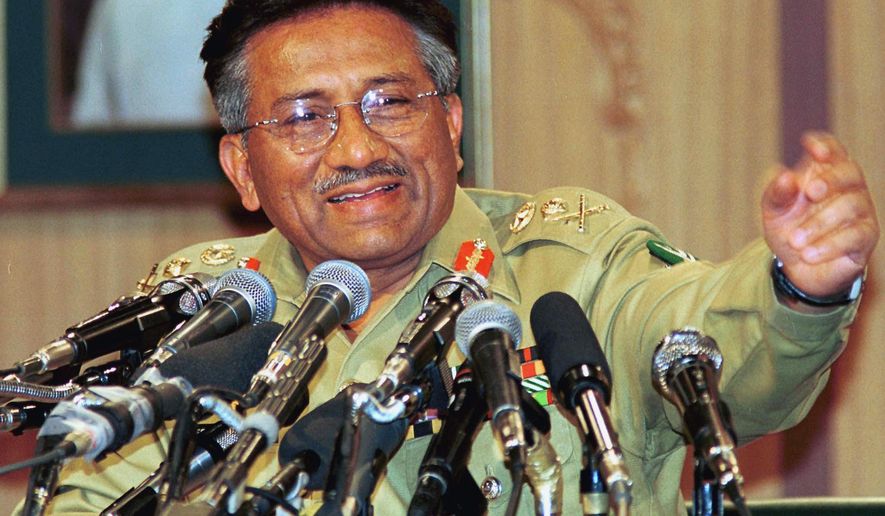Most Americans hadn’t seen or heard the name of former Pakistani military ruler Pervez Musharraf for many years before news broke of his death this month. Musharraf had been ill, living a quiet existence in self-imposed exile in Dubai, a long way in space and time from his once esteemed position as an important U.S. ally in the war against the Taliban and al Qaeda in Afghanistan.
Musharraf’s reluctant embrace of the U.S. war helped fuel his downfall, as it riled segments of Pakistan’s population of fundamentalist Islamists who opposed ousting the Pashtun-dominated Taliban from Kabul. As the backlash to his policies escalated, Musharraf became increasingly despotic, ultimately suspending the Pakistani constitution and imposing emergency rule in 2007. At the same time, Pakistan’s difficulties in finding al Qaeda and Taliban warriors in the brutal terrain along the Afghanistan border frustrated Bush administration officials.
In this episode of History As It Happens, New America national security expert Peter Bergen discusses the legacy of a ruler who, after coming to power in a bloodless coup in 1999, tried to reform and modernize his nation before his authoritarian lurch led to his demise. Pakistani police arrested Musharraf in 2013 for his role in a bloody crackdown on Islamists in 2007.
“Musharraf did come to power in a military coup, but it was bloodless, and it was pretty popular when it happened, as I recall, in 1999. A lot of Pakistanis were fed up with what they saw as a corrupt political class ruling the country. Musharraf himself was not corrupt and he seemed to promise a more orderly Pakistan,” said Mr. Bergen, who is an expert on al Qaeda and one of a handful of Western journalists to have interviewed Osama bin Laden.
Then the Sept. 11, 2001, terrorist attacks happened, and the Bush administration needed Pakistan’s land bases and air space to wage war in Afghanistan. Musharraf relented to the administration’s ultimatums, but Pakistan’s interests in Afghanistan would never align with U.S. interests there. For Pakistan, Afghanistan existed to provide strategic depth against its rival India. To achieve it, Pakistan’s powerful military and intelligence services wanted the Pashtun-dominated Taliban to rule in Kabul – a state of affairs unacceptable to the United States.
SEE ALSO: History As It Happens: Ayman al-Zawahiri and the future of al Qaeda
Listen to Mr. Bergen discuss the legacy of Musharraf and the global war on terrorism by downloading this episode of History As It Happens.




